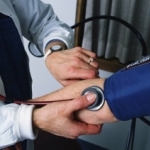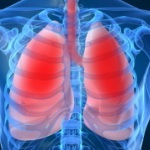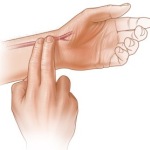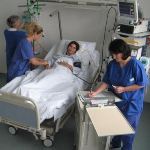 Assistance in hypertensive crisis
Assistance in hypertensive crisis

A hypertensive crisis is a condition that occurs as a result of a sharp sudden increase in blood pressure. This condition is urgent, therefore, the provision of assistance in a hypertensive crisis should occur quickly and clearly according to the algorithm.
At the same time, specific high numbers are not singled out. Changes in both the blood pressure indicators themselves and the patient's well-being are assessed individually in each case.
In some cases, a crisis state may be the first symptom of the presence of hypertension. A hypertensive crisis is dangerous due to the risk of severe disorders of the nervous system (strokes), cardiovascular (heart attacks, pulmonary edema).
Typical symptoms of a hypertensive crisis
- Sharp headache, often in the occiput.
- Sensation of pulsation in temporal regions.
- Nausea, vomiting without relief.
- Cardiopalmus.
- Feelings of fear, anxiety.
- Hyperemia of the skin, often the face, neck, anterior surface of the chest.
- An increase in blood pressure, while diastolic - up to 110-120 mm Hg. Art.
- Compressive chest pains, vegetative phenomena and other symptoms are possible.
Assistance in hypertensive crisis. Algorithm of actions of a nurse
- Call the doctor on duty or the attending physician.
- Lay the patient on a surface with a raised head end, unfasten tight clothing (collar, belt), turn the patient's head to one side when vomiting.
- Provide physical and mental peace - calm the patient, ask other patients to leave the room.
- Provide fresh air or oxygen supply.
- Give under the tongue captopril (Capoten) at a dose of 12.5-25 mg (1/2-1 tablet) or nifedipine (Corinfar, Cordaflex) at a dose of 10-20 mg.
- For pain in the region of the heart, give nitroglycerin under the tongue, with intolerance - validol.
- Monitor blood pressure , pulse , respiratory rate every 2-5 minutes.
- Provide intravenous access - puncture the vein.
- Provide ECG recording.
- Further measures to carry out under the supervision of a physician.
- Be ready for urgent hospitalization of the patient in the intensive care unit.
In many ways, the prediction of the consequences of a hypertensive crisis depends on the correctness and timeliness of actions at the very beginning of its occurrence. The nurse should be able to provide care for a hypertensive crisis and be attentive and collected during urgent events.






lrnaep